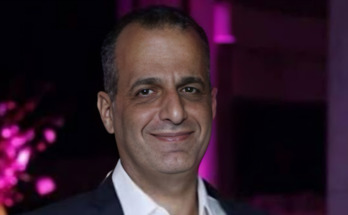-
Pro-Turkey hackers linked to recent cyberattacks: Sources

Sweeping cyberattacks targeting governments and other organizations in Europe and the Middle East are believed to be the work of hackers acting in the interests of the Turkish government, three senior Western security officials said.
The hackers have attacked at least 30 organizations, including government ministries, embassies, and security services as well as companies and other groups, according to a Reuters review of public internet records. Victims have included Cypriot and Greek government email services and the Iraqi government’s national security advisor, the records show.
The attacks involve intercepting internet traffic to victim websites, potentially enabling hackers to obtain illicit access to the networks of government bodies and other organizations.
According to two British officials and one US official, the activity bears the hallmarks of a state-backed cyber-espionage operation conducted to advance Turkish interests.
The officials said that conclusion was based on three elements: the identities and locations of the victims, which included governments of countries that are geopolitically significant to Turkey; similarities to previous attacks that they say used infrastructure registered from Turkey; and information contained in confidential intelligence assessments that they declined to detail.
The officials said it wasn’t clear which specific individuals or organizations were responsible but that they believed the waves of attacks were linked because they all used the same servers or other infrastructure.
Turkey’s Interior Ministry declined to comment. A senior Turkish official did not respond directly to questions about the campaign but said Turkey was itself frequently a victim of cyberattacks.
The Cypriot government said in a statement that the “relevant agencies were immediately aware of the attacks and moved to contain” them. “We will not comment on specifics for reasons of national security,” it added.
Officials in Athens said they had no evidence the Greek government email system was compromised. The Iraqi government did not respond to requests for comment.
The Cypriot, Greek and Iraqi attacks identified by Reuters all occurred in late 2018 or early 2019, according to the public internet records. The broader series of attacks is ongoing, according to the officials as well as private cybersecurity investigators.
A spokeswoman for the UK’s National Cyber Security Centre, which is part of the GCHQ signals intelligence agency, declined to comment on who was behind the attacks. In the United States, the Office of the Director of National Intelligence declined to comment on who was behind the attacks and the Federal Bureau of Investigation did not respond to a request for comment.
Hijacked
The attacks highlight a weakness in a core pillar of online infrastructure that can leave victims exposed to attacks that happen outside their networks, making them difficult to detect and defend against, cybersecurity specialists said.
The hackers used a technique known as DNS hijacking, according to the Western officials and private cybersecurity experts. This involves tampering with the effective address book of the internet, called the Domain Name System (DNS), which enables computers to match website addresses with the correct server.
By reconfiguring parts of this system, hackers were able to redirect visitors to imposter websites, such as a fake email service, and capture passwords and other text entered there.
Reuters reviewed public DNS records, which showed when website traffic was redirected to servers identified by private cybersecurity firms as being controlled by the hackers. All of the victims identified by Reuters had traffic to their websites hijacked - often traffic visiting login portals for email services, cloud storage servers and online networks -- according to the records and cybersecurity experts who have studied the attacks.
The attacks have been occurring since at least in early 2018, the records show.
While small-scale DNS attacks are relatively common, the scale of these attacks has alarmed Western intelligence agencies, said the three officials and two other US intelligence officials. The officials said they believed the attacks were unrelated to a campaign using a similar attack method uncovered in late 2018.
As part of these attacks, hackers successfully breached some organizations that control top-level domains, which are the suffixes that appear at the end of web addresses immediately after the dot symbol, said James Shank, a researcher in the US cybersecurity firm Team Cymru, which notified some of the victims.
Victims
Victims also included Albanian state intelligence, according to the public internet records. Albanian state intelligence had hundreds of usernames and passwords compromised as a result of the attacks, according to one of the private cybersecurity investigators, who was familiar with the intercepted web traffic.
The Albanian State Information Service said the attacks were on non-classified infrastructure, which does not store or process any “any information classified as ‘state secret’ of any level.”
Civilian organizations in Turkey have also been attacked, the records show, including a Turkish chapter of the Freemasons, which conservative Turkish media has said is linked to US-based Muslim cleric Fethullah Gulen accused by Ankara of masterminding a failed coup attempt in 2016.
The Great Liberal Lodge of Turkey said there were no records of cyberattacks against the hijacked domains identified by Reuters and that there had been “no data exfiltration.”
“Thanks to precautions, attacks against the sites are not possible,” a spokesman said, adding that the cleric has no affiliation with the organization.
The cleric has publicly denied masterminding the attempted coup, saying “it’s not possible,” and has said he is always against coups.
A spokesman for Gulen said Gulen was not involved in the coup attempt and has repeatedly condemned it and its perpetrators. Gulen has never been associated with the Freemason organization, the spokesman added.
source: Reuters
You May Also Like
Popular Posts
Caricature
BENEFIT AGM approves 10%...
- March 27, 2025
BENEFIT, the Kingdom’s innovator and leading company in Fintech and electronic financial transactions service, held its Annual General Meeting (AGM) at the company’s headquarters in the Seef District.
During the meeting, shareholders approved all items listed on the agenda, including the ratification of the minutes of the previous AGM held on 26 March 2024. The session reviewed and approved the Board’s Annual Report on the company’s activities and financial performance for the fiscal year ended 31 December 2024, and the shareholders expressed their satisfaction with the company’s operational and financial results during the reporting period.
The meeting also reviewed the Independent External Auditor’s Report on the company’s consolidated financial statements for the year ended 31 December 2024. Subsequently, the shareholders approved the audited financial statements for the fiscal year. Based on the Board’s recommendation, the shareholders approved the distribution of a cash dividend equivalent to 10% of the paid-up share capital.
Furthermore, the shareholders endorsed the allocation of a total amount of BD 172,500 as remuneration to the members of the Board for the year ended 31 December 2024, subject to prior clearance by related authorities.
The extension of the current composition of the Board was approved, which includes ten members and one CBB observer, for a further six-month term, expiring in September 2025, pending no objection from the CBB.
The meeting reviewed and approved the Corporate Governance Report for 2024, which affirmed the company’s full compliance with the corporate governance directives issued by the CBB and other applicable regulatory frameworks. The AGM absolved the Board Members of liability for any of their actions during the year ending on 31st December 2024, in accordance with the Commercial Companies Law.
In alignment with regulatory requirements, the session approved the reappointment of Ernst & Young (EY) as the company’s External Auditors for the fiscal year 2025, covering both the parent company and its subsidiaries—Sinnad and Bahrain FinTech Bay. The Board was authorised to determine the external auditors’ professional fees, subject to approval from the CBB, and the meeting concluded with a discussion of any additional issues as per Article (207) of the Commercial Companies Law.
Speaking on the company’s performance, Mr. Mohamed Al Bastaki, Chairman BENEFIT , stated: “In terms of the financial results for 2024, I am pleased to say that the year gone by has also been proved to be a success in delivering tangible results. Growth rate for 2024 was 19 per cent. Revenue for the year was BD 17 M (US$ 45.3 Million) and net profit was 2 Million ($ 5.3 Million).
Mr. Al Bastaki also announced that the Board had formally adopted a new three-year strategic roadmap to commence in 2025. The strategy encompasses a phased international expansion, optimisation of internal operations, enhanced revenue diversification, long-term sustainability initiatives, and the advancement of innovation and digital transformation initiatives across all service lines.
“I extend my sincere appreciation to the CBB for its continued support of BENEFIT and its pivotal role in fostering a stable and progressive regulatory environment for the Kingdom’s banking and financial sector—an environment that has significantly reinforced Bahrain’s standing as a leading financial hub in the region,” said Mr. Al Bastaki. “I would also like to thank our partner banks and valued customers for their trust, and our shareholders for their ongoing encouragement. The achievements of 2024 set a strong precedent, and I am confident they will serve as a foundation for yet another successful and impactful year ahead.”
Chief Executive of BENEFIT; Mr. Abdulwahed AlJanahi commented, “The year 2024 represented another pivotal chapter in BENEFIT ’s evolution. We achieved substantial progress in advancing our digital strategy across multiple sectors, while reinforcing our long-term commitment to the development of Bahrain’s financial services and payments landscape. Throughout the year, we remained firmly aligned with our objective of delivering measurable value to our shareholders, strategic partners, and customers. At the same time, we continued to play an active role in enabling Bahrain’s digital economy by introducing innovative solutions and service enhancements that directly address market needs and future opportunities.”
Mr. AlJanahi affirmed that BENEFIT has successfully developed a robust and well-integrated payment network that connects individuals and businesses across Bahrain, accelerating the adoption of emerging technologies in the banking and financial services sector and reinforcing Bahrain’s position as a growing fintech hub, and added, “Our achievements of the past year reflect a long-term vision to establish a resilient electronic payment infrastructure that supports the Kingdom’s digital economy. Key developments in 2024 included the implementation of central authentication for open banking via BENEFIT Pay”
Mr. AlJanahi concluded by thanking the Board for its strategic direction, the company’s staff for their continued dedication, and the Central Bank of Bahrain, member banks, and shareholders for their valuable partnership and confidence in the company’s long-term vision.
opinion
Report
ads
Newsletter
Subscribe to our mailing list to get the new updates!






















